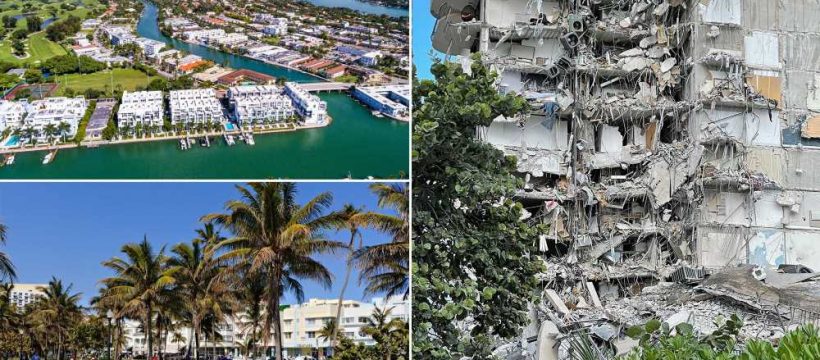More On:
florida
Distraught relative: More people should be searching Florida condo rubble
Florida woman with broken pelvis reportedly pulls daughter from rubble
Death toll rises as bodies removed from collapsed condo, 159 residents unaccounted for
Security footage shows Florida condo being pelted with debris moments before collapse
Two researchers who found that the collapsed Miami-Dade condo building was sinking for years before it crumbled to the ground Thursday had identified several other areas of the city that had similar subsidence issues, according to a study published last year.
The paper, authored by Shimon Wdowinski and Simone Fiaschi, determined the 12-story Champlain Towers South in Surfside had been sinking by a rate of 1.9 mm per year from 1993 to 1999 before it collapsed on Thursday.
The researchers also identified several other areas of the city that were subsiding at faster rates during those years, according to the study, which was published by the journal Ocean and Coastal Management.
About a mile and a half south of the Champlain Towers, the ground on Park View Island was seeping down at an average rate of 2.3 mm a year, according to graphs published in the study.
And about seven miles south of Park View Island, two areas under the Flamingo/Lummus neighborhood in Miami Beach were sinking at a rate of 2.0 mm per year, according to the data.
North Bay Village, an island between Miami and Miami Beach, was also sinking, but the researchers did not include an average rate of the decline, the study shows.
One of the authors of the study told USA Today that he was stunned when he saw news of the building collapse and remembered the study.
“I looked at it this morning and said, ‘Oh my God.’ We did detect that,” Wdowinski told the newspaper.
He added that the findings do not certainly point to that being the cause of the collapse, but said the level of sinking results in “impacts to buildings and their structures,” the newspaper reported.
The former mayor of Surfside cautioned people about drawing conclusions about the cause of the collapse.
“This is an extraordinarily unusual event, and it is dangerous and counterproductive to speculate on its cause,” Daniel Dietch told USA Today.
Share this article:
Source: Read Full Article




